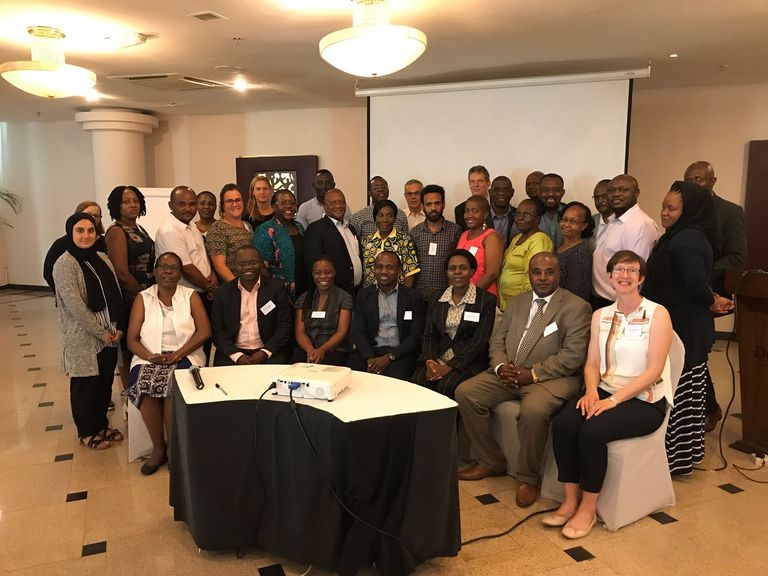Working in Effective Partnerships to Address Sustainable Development Goals
UKRI-KFPE Workshop in Tansania
In September 2018, UK Research and Innovation (UKRI) and the KFPE held a joint workshop in Tanzania. The purpose of which was to bring together researchers and stakeholders from the Global South to identify: (1) What constitutes best practice in research partnerships (2) How to engage researchers and governments from the Global South in research programme agenda setting (3) How to translate research outputs into development impact.

Through a series of presentations, breakout sessions and a panel discussion the attendees identified a number of recommendations for how research funders could support and promote equitable partnerships and research translation. The key messages are highlighted below.
Engaging stakeholders from the Global South in the development of North – South research programme is important to ensure that the programmes address the priorities of developing countries. Funders could engage stakeholders from the Global South more effectively in the development of programmes by:
- Using a participatory process to involve stakeholders from the Global South in co-designing the research programme agenda
- Establishing local advisory networks
- Developing a greater understanding of national/regional priorities
- Providing support for national/regional priority setting
- Launching broad calls and providing support for applicants from the Global South to develop proposals
- Using a range of tools, technologies and resources to engage stakeholders from the Global South in dynamic and wide ranging consultations about priority setting.
II) Researchers in the Global South face a number of challenges such as poor infrastructure, lack of core institutional funding for research, lack of resources, lack of mentors and lack of local funding opportunities. North - South research partnerships could address some of these challenges (Find out more in the report).
III) Funders could do more to support and enable equitable North – South Research partnerships, throughout the funding cycle (Find out more in the report).
IV) There are a number of challenges and barriers to translating research outputs into policy and practice including institutional factors such as a lack of investment, difficulty engaging and getting the buy in of policymakers, lack of capacity for research translation and limited resources. To support and enable the translation of research outputs into policy and practice funders could do more (Find out more in the report)
The workshop report provides a framework for funders to develop good practice in supporting equitable research partnerships and maximise impact through North – South research funding programmes and offers funders a valuable lens through which to review their existing funding processes.
UKRI is committed to using the recommendations detailed in this report to identify opportunities to further embed the principles of equitable research partnerships in its research programmes.
